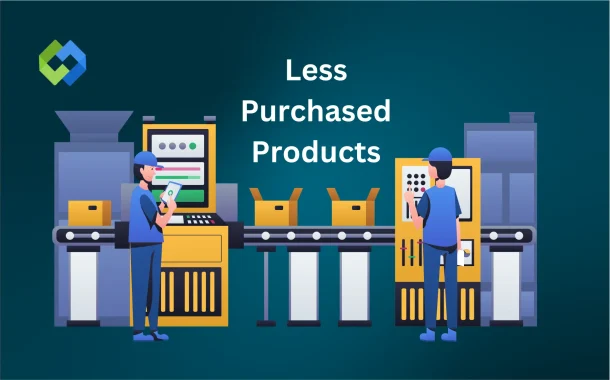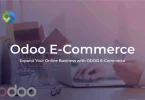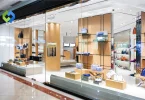These trends help businesses target the right products and adjust their strategies. We’ll look at factors affecting sales of certain items online. This insight can help both sellers and buyers make informed decisions.
Table of Contents
Table of Contents
High-End Luxury Goods
High-end luxury goods are items like designer fashion, exclusive jewelry, and premium watches. These products are known for their high price tags and unique appeal. Many buyers of luxury items prefer shopping in physical stores where they can see, touch, and try on products. The in-store experience offers a sense of exclusivity and personal service that online shopping often struggles to match.
Ecommerce for luxury goods presents several challenges. Ensuring the authenticity of high-end items is crucial. Buyers need to trust that the products they purchase online are genuine and not counterfeit. Additionally, providing top-notch customer service and handling returns or exchanges effectively is essential to maintain customer satisfaction.
Shipping high-value items also involves risks. Expensive products can be damaged during delivery, and shipping costs can be high. These factors contribute to why many people still prefer to purchase luxury goods in person rather than online.
Perishable Items
Perishable items include food and other products that have a short shelf life. Examples are fresh produce, dairy products, and baked goods. These items need careful handling to stay fresh and safe for consumption. Selling perishables online involves significant challenges related to storage, transportation, and shelf life.
One major issue with ecommerce for perishables is ensuring the products remain fresh during shipping. This requires specialized packaging and expedited delivery, which can be costly. Additionally, maintaining the right temperature throughout the shipping process is crucial to prevent spoilage. These logistical challenges make it harder for online retailers to sell perishable items compared to non-perishable goods.
Consumers also prefer buying perishables in physical stores where they can inspect freshness directly. The sensory experience of checking for quality and freshness is a key factor in why perishable items are less frequently purchased online.
Heavy and Bulky Items
Heavy and bulky items include products like furniture, appliances, and large equipment. These items are challenging to handle and ship due to their size and weight. Buyers often prefer to see these products in person to assess their quality and fit before making a purchase.
Shipping heavy and bulky items involves significant logistical issues. It requires specialized packaging and often high shipping costs. The risk of damage during transport is also higher, which can lead to returns and dissatisfaction. These challenges make it less appealing for both buyers and sellers to conduct transactions online.
In-person shopping for such items allows customers to physically inspect and test them. This direct experience can be crucial for making a final decision. As a result, many people still choose to buy heavy and bulky items from physical stores rather than online.
Customized Products
Customized products are tailored to individual preferences, such as personalized gifts, bespoke clothing, or custom-built furniture. The customization process often involves detailed design choices and adjustments, making these products unique to each buyer. Because of this complexity, customers usually want to be directly involved in the creation process.
Selling customized products online presents challenges. It can be difficult to accurately represent the final product through photos and descriptions alone. Ensuring that the customization meets the buyer’s expectations requires clear communication and frequent updates. Managing the design and production process remotely can also lead to misunderstandings and errors.
Customers often prefer to discuss their customization needs in person to ensure accuracy and satisfaction. This face-to-face interaction helps to address any concerns and make real-time adjustments. As a result, the online market for customized products remains limited compared to in-store options.
Highly Regulated Items
Highly regulated items are products that are subject to strict government controls, such as pharmaceuticals, alcohol, and certain chemicals. These regulations are in place to ensure safety, legality, and proper usage. Compliance with these regulations is crucial for sellers, as violations can lead to severe penalties.
Selling regulated items online involves navigating complex legal requirements. For instance, shipping pharmaceuticals often requires specific licenses and adherence to stringent guidelines. Similarly, selling alcohol online may require age verification and compliance with local laws regarding distribution. Ensuring that all legal requirements are met can be challenging and costly.
Consumers often prefer to purchase regulated items from physical stores where they can receive proper guidance and verification. The complexity of compliance and the need for secure handling contribute to why these products are less frequently bought online. In-person purchases offer more reassurance and direct oversight.
Niche Market Products
Niche market products cater to specific, often small, groups of consumers with unique needs or interests. Examples include specialized hobby equipment, rare collectibles, or unique cultural items. These products usually have a limited audience, which can make them challenging to market effectively.
Selling niche products online has its own set of challenges. Reaching the right audience requires targeted marketing and often higher advertising costs. It can be difficult to build a large enough customer base to sustain a profitable business. Additionally, niche products may not benefit from the same level of consumer demand as more mainstream items.
Despite these challenges, niche markets can be profitable. Online platforms offer opportunities to reach dedicated enthusiasts and collectors who might not be served by traditional retail channels. Success in this area often depends on effective online marketing and understanding the specific needs of the niche audience.
Conclusion
Certain products are less commonly purchased through ecommerce due to various challenges. High-end luxury goods, perishable items, heavy and bulky items, customized products, and highly regulated items each have unique issues that affect online sales. For luxury goods, authenticity and personal experience are key. Perishables need careful handling and fast delivery, which can be costly.
Niche market products often struggle with limited audience reach and high marketing costs. While online shopping continues to grow, some products are better suited for in-person purchases due to the need for physical inspection, immediate feedback, or compliance with regulations.














